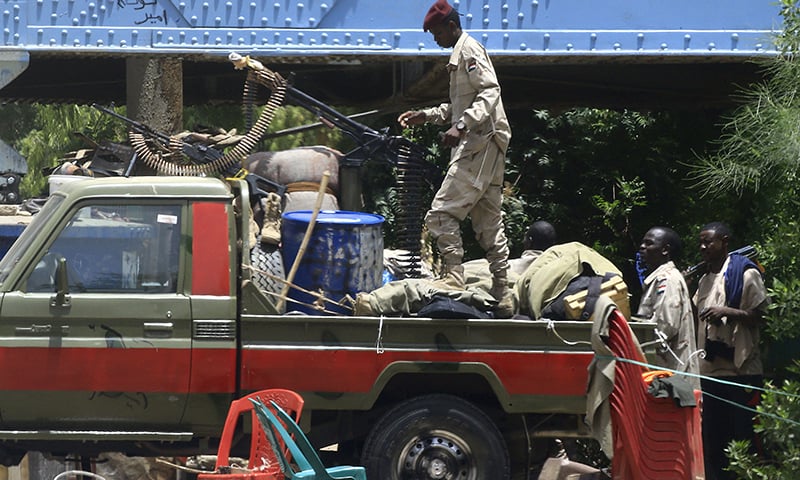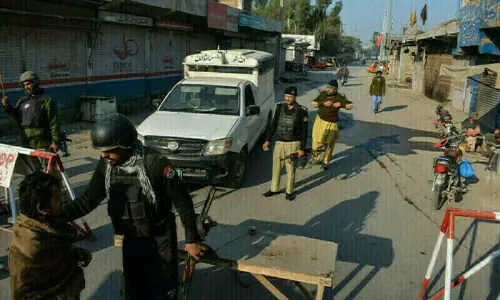Landline internet connections were down across Sudan on Monday, a week after mobile online services were cut following a deadly crackdown on protesters.
One week ago, security forces violently swept away a camp where demonstrators had been holding a sit-in outside the army headquarters in Khartoum, with over 100 people killed.
Read more: Sudan's military stages coup, ousts long-time president in face of protests
In response, the opposition called a general strike that began on Sunday, the first day of the workweek in Sudan, to keep up pressure on the military, which had cancelled a power transfer agreement that called elections within nine months following the dismissal in April of the civilian regime of Omar al-Bashir.
Opposition doctors say at least 118 people have been killed since the raid on the sit-in. The military council has confirmed 61 deaths, including three members of the security services.
Read more: Sudan denies more than 100 killed in protest crackdown
The military claimed that the protesters were escalating Sudan's political crisis and doing major harm to the country and its security by calling the strike.
Protest organisers said the campaign would run until the generals handed power to a civilian government.
'Almost total blackout'
Internet lines from the country's main provider Sudantel stopped working in the capital Khartoum in the early afternoon, an AFP correspondent said, adding the outage had affected embassies, luxury hotels and offices.

Cyber security monitor Netblocks said “an almost total blackout” started around noon local time.
“It's the first time Sudantel has cut off everything in the country,” a spokesman for the group said.
“It was not switching off data centres, more like a digital cutting of all lines,” he said, adding the monitor first noticed “signs of disconnection” at the weekend.
The cuts come as a nationwide civil disobedience campaign entered its second day against the country's ruling generals who took power after the ouster of longtime leader Omar al-Bashir in April.
Netblocks said current outages were different than previous internet shutdowns under Bashir, which were done “with a high degree of synchronisation”.
“What we see now is that networks are going down then partially coming back,” the spokesman said.
Rebel leaders deported
The military today also deported three members of a rebel movement detained last week in the wake of the deadly raid on the sit-in, the movement said on Monday.

The three are members of the Sudan People's Liberation Movement-North (SPLM-N), one of the country's main rebel groups and part of an alliance pushing for a handover to civilian rule after the military deposed the president.
The deportations came as a small number of shops and businesses in Khartoum reopened on the second day of a campaign of strikes and civil disobedience aimed at putting pressure on the Transitional Military Council to relinquish power.
“We are against the killing of civilians and we support the (DFCF) but today I returned to work because I earn my income day by day and I am the only source of income for my family and my children,” said Saleh Yaqoub, a 53-year-old shopkeeper.
The strikes have also disrupted transport services and flights at Khartoum airport. Gulf Air said it had cancelled flights between Bahrain and Khartoum until June 15 because of the political situation in Sudan.
Stability in Sudan is crucial for a volatile region struggling with conflict and insurgencies from the Horn of Africa to Egypt and Libya. Various powers, including Russia and the Gulf Arab states, are trying to influence its path.
Saudi Arabia and the United Arab Emirates, which have close ties with the military council, have said they are watching developments with concern and support a renewal of dialogue.


































